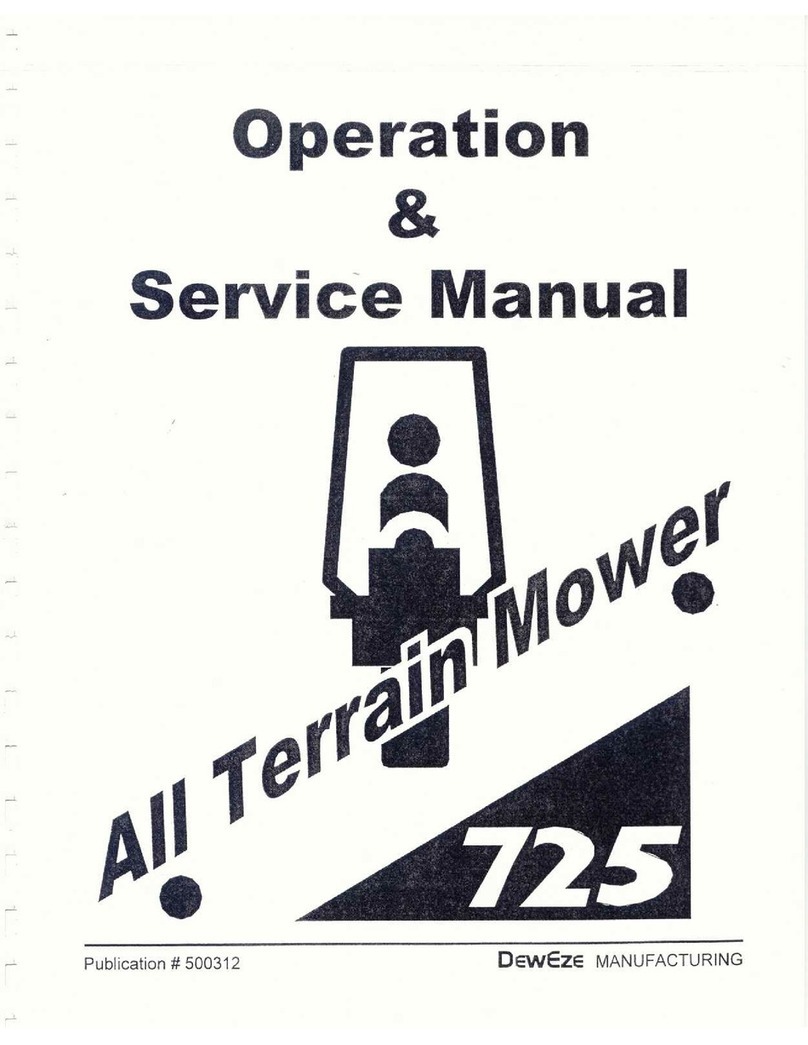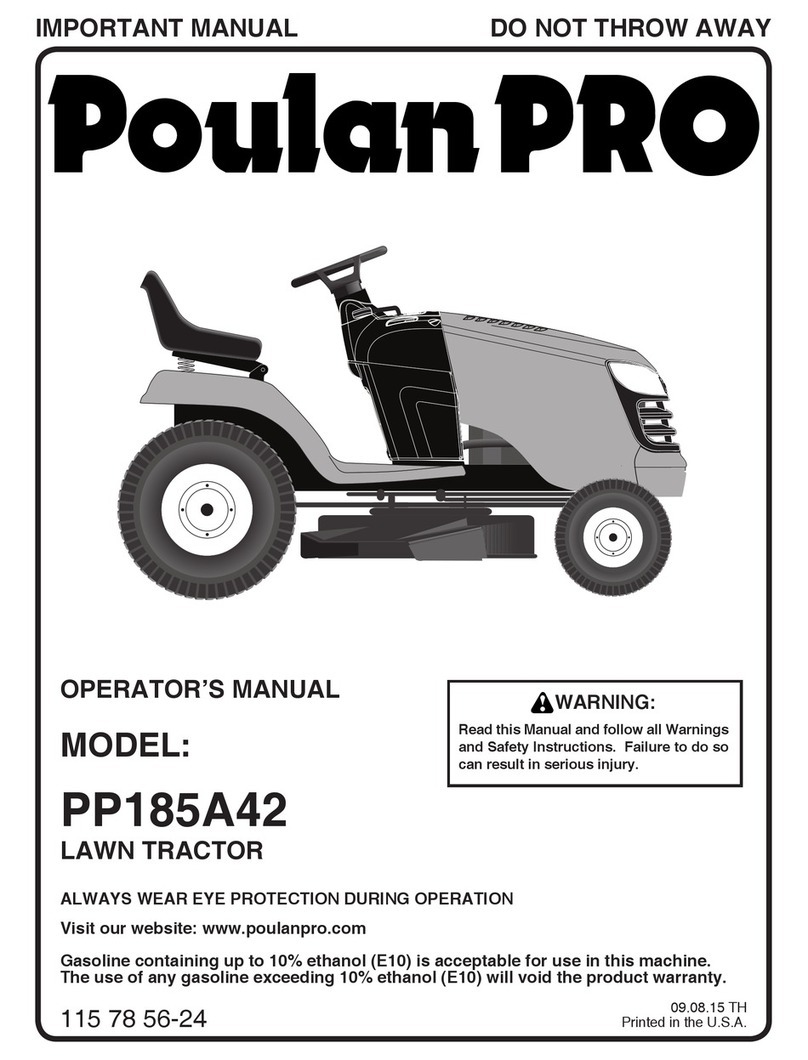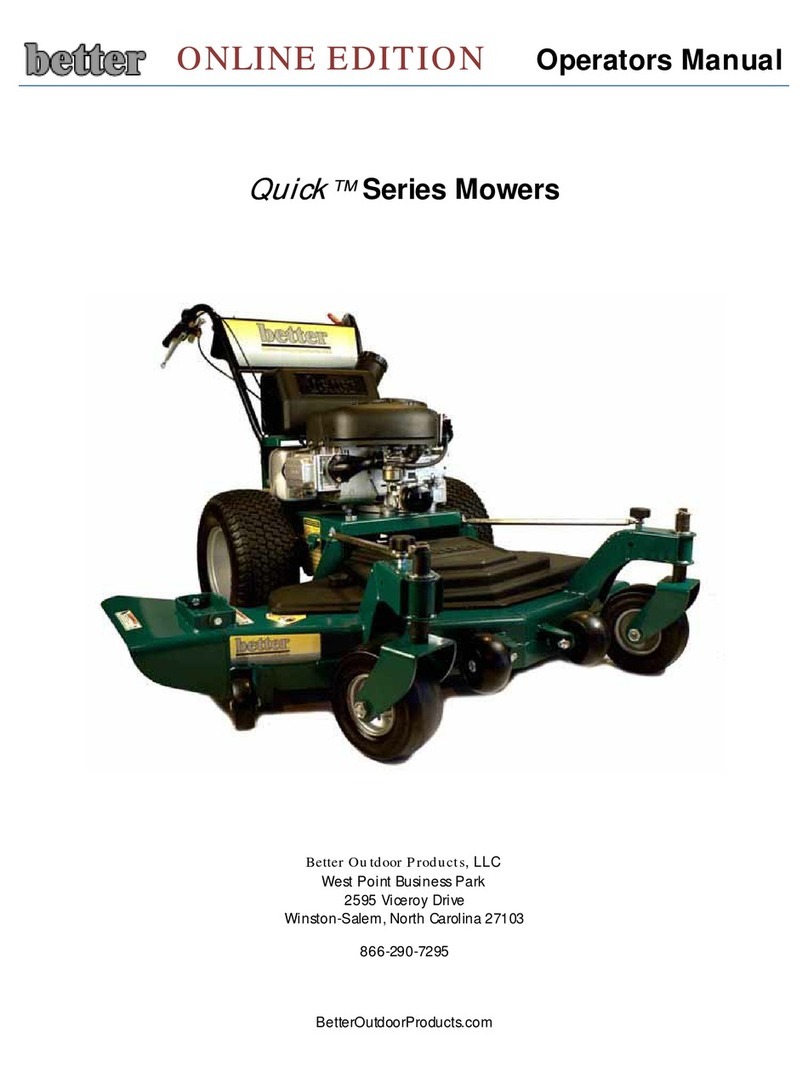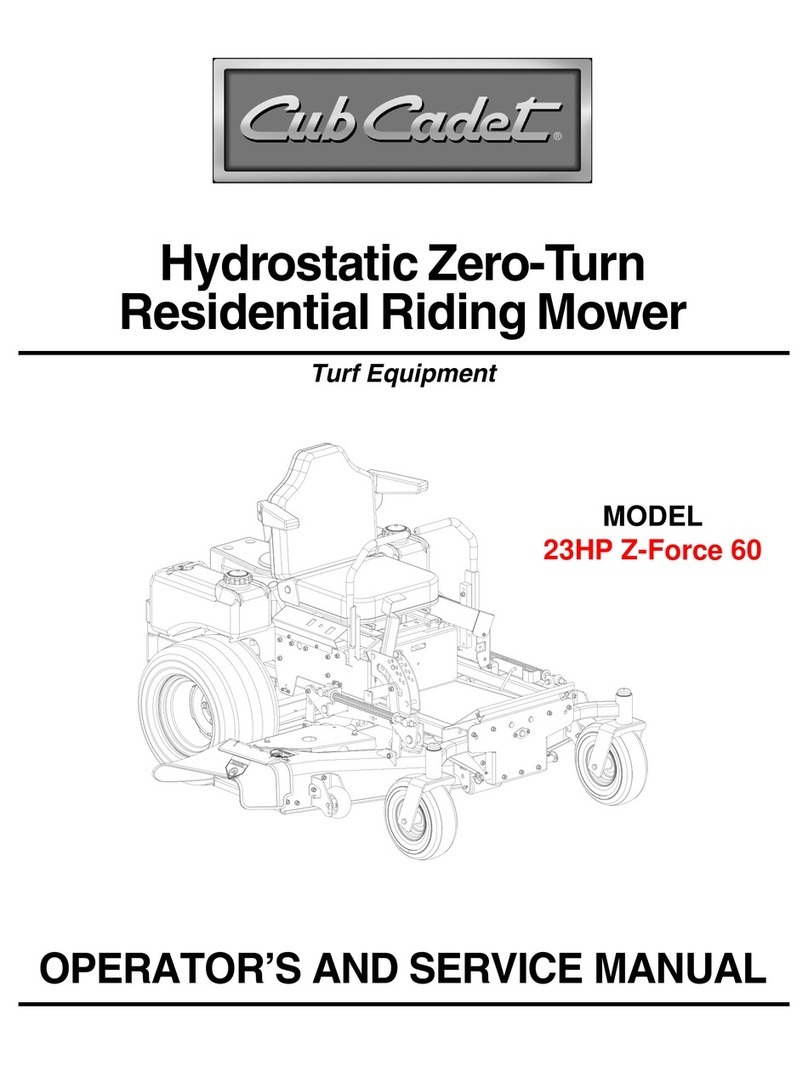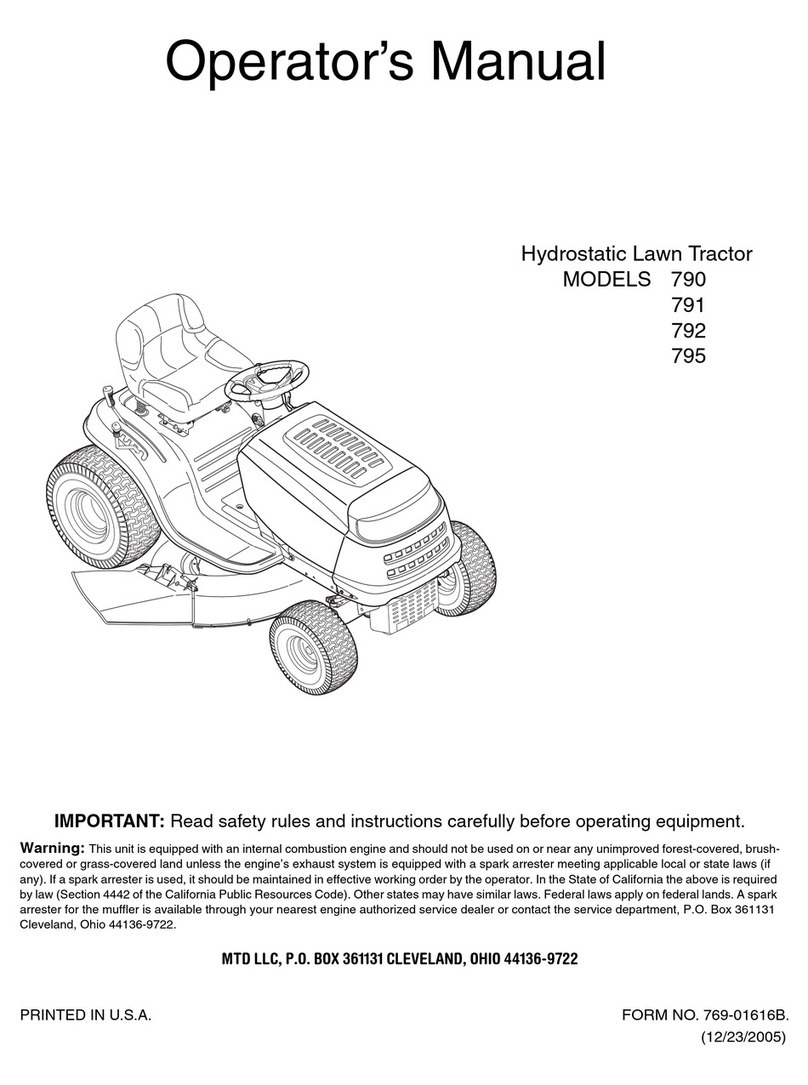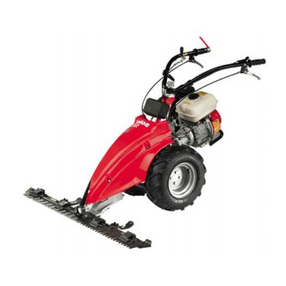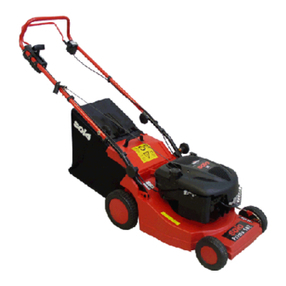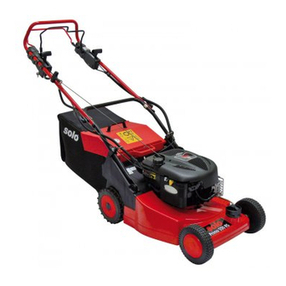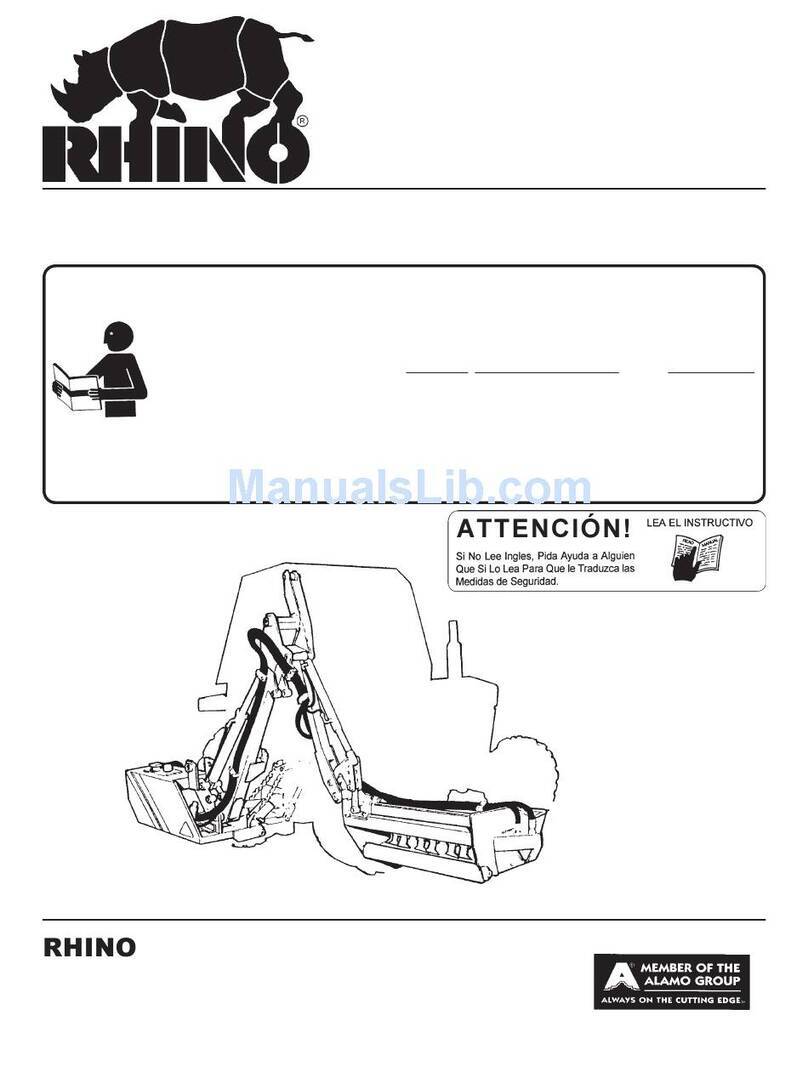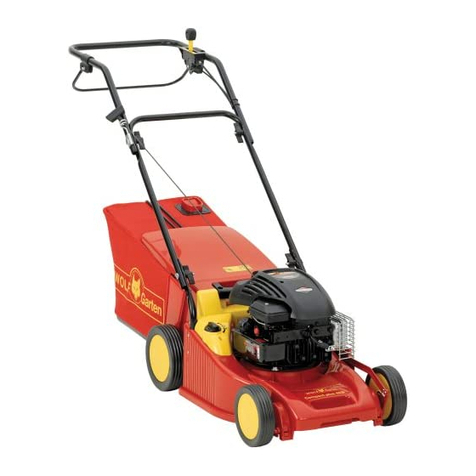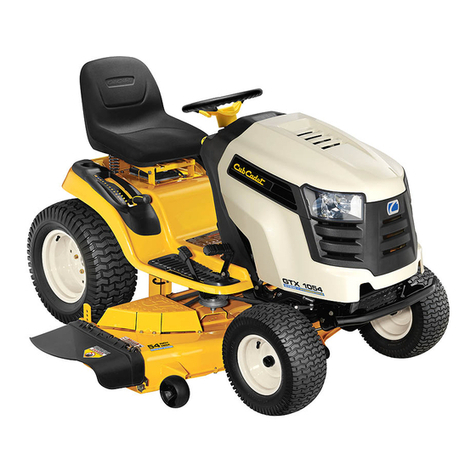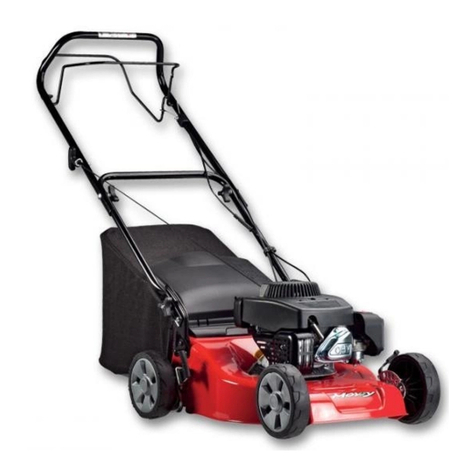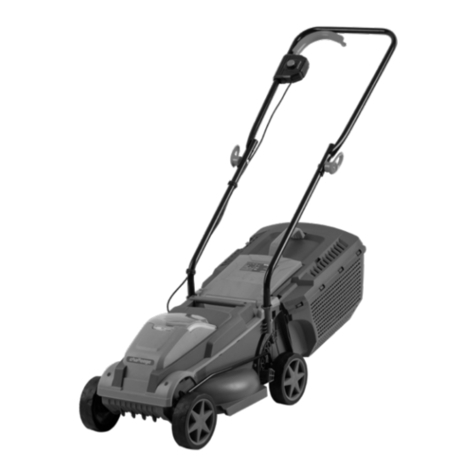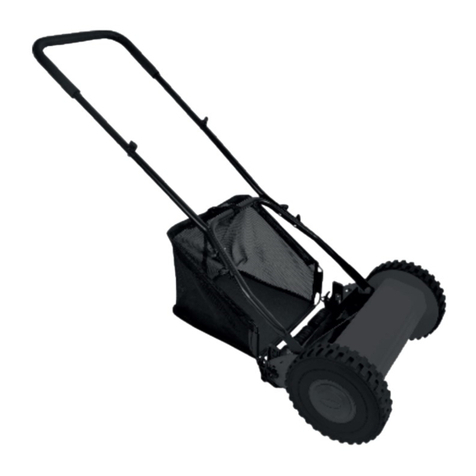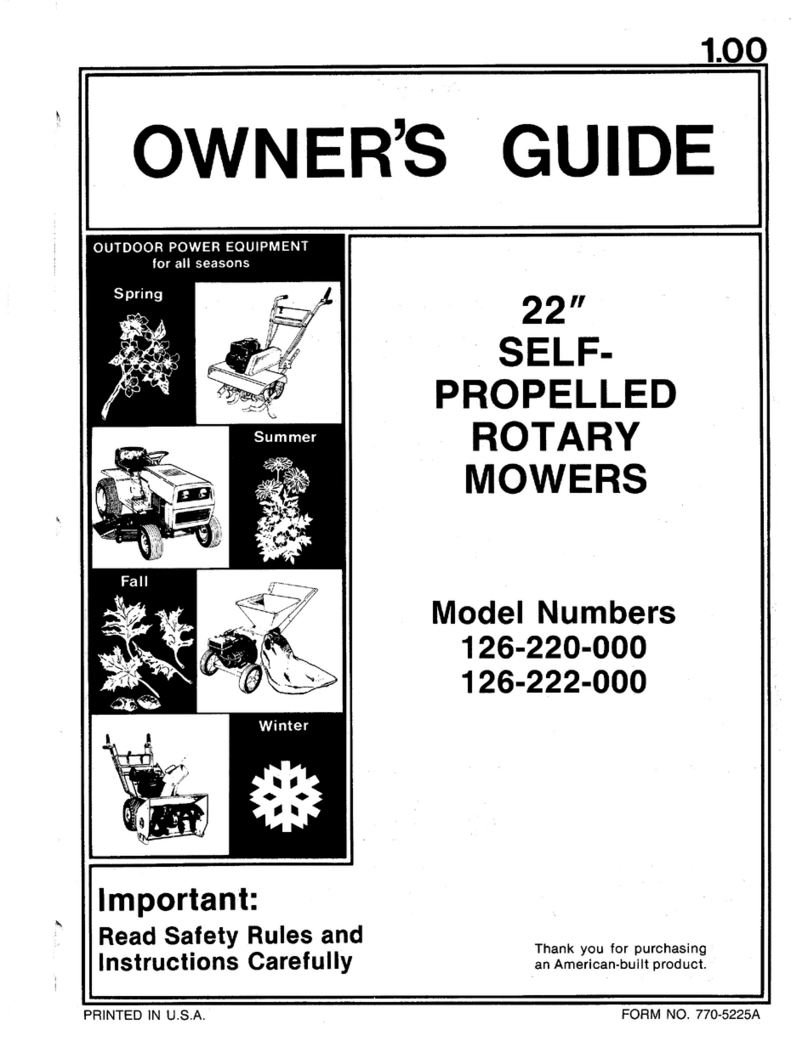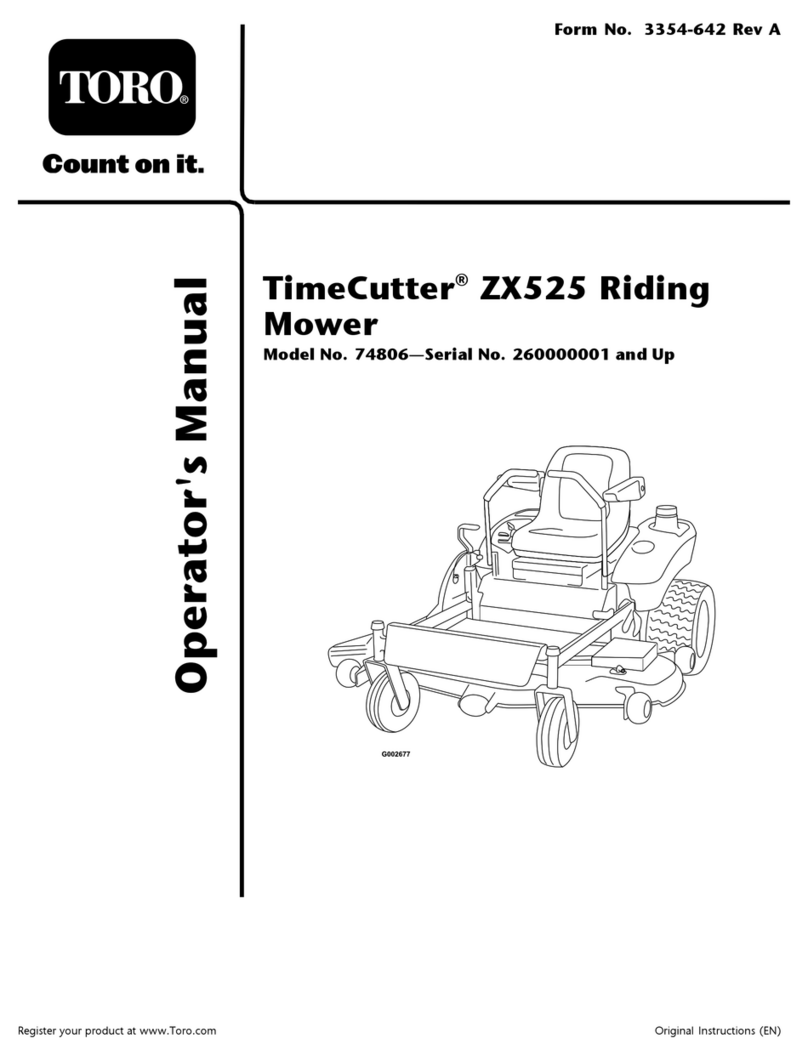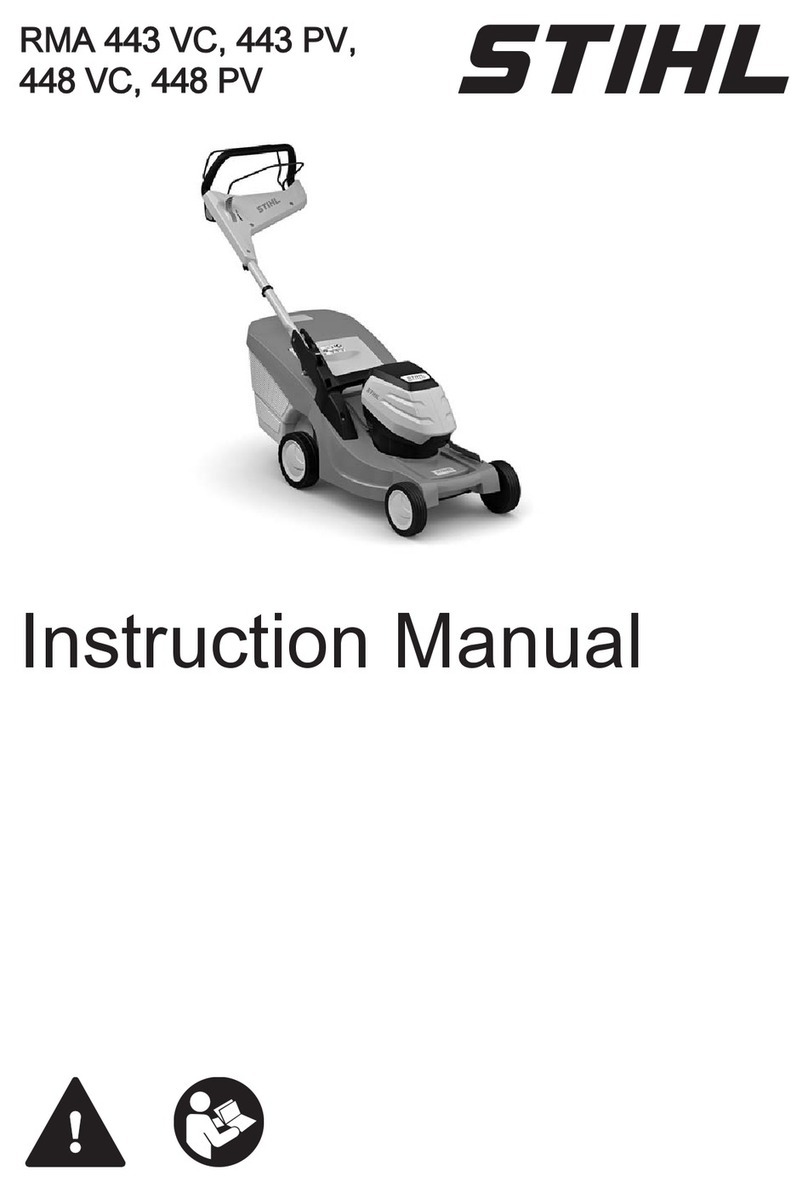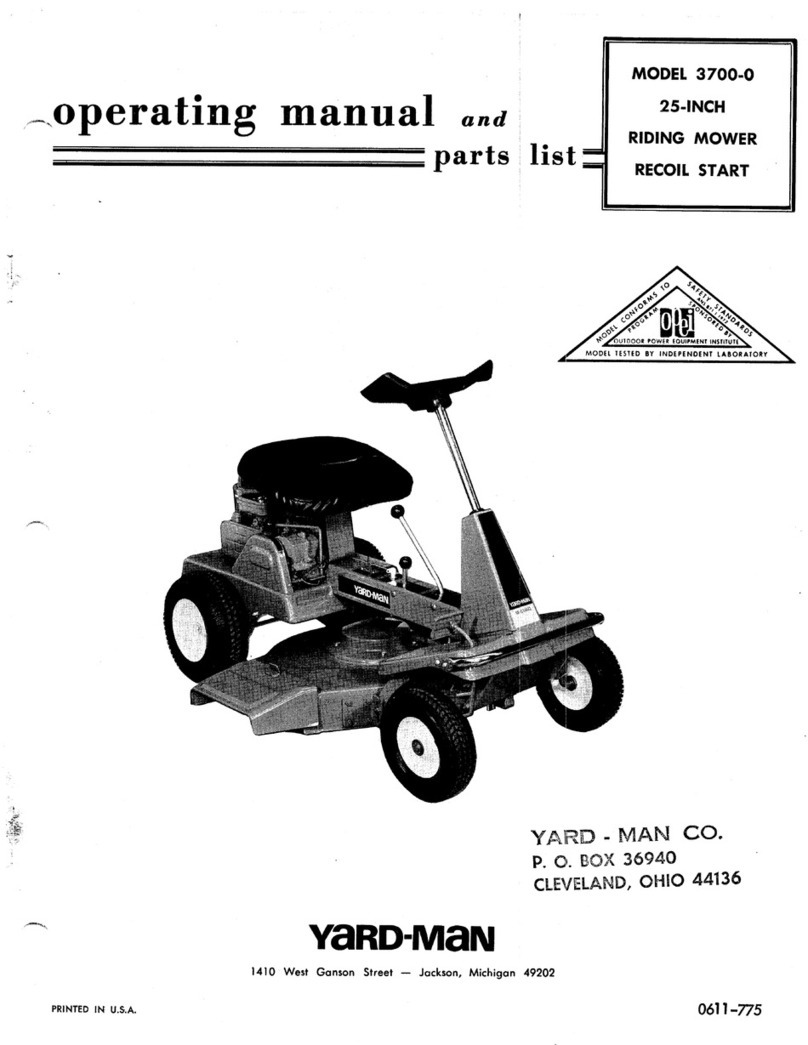
OPERATING AND SAFETY INSTRUCTIONS
FLAIL MOWER MOD. 526L
FOREWORD
This machine may only be utilized for the purpose for which it was designed, i.e.
agricultural use, for the cutting of shoots, grass and brushwood.
Any other use other than that stated, not covered or deducible from this Manual
and the enclosed Engine Manual is "PROHIBITED".
Failure to comply with instructions in this Manual and in the Engine Manual re-
leases the manufacturer from all liability, in particular for any damage resulting
from improper or incorrect use, through negligence, superficial interpretation or
flagrant disregard for the safety requirements herein.
Get your dealer to explain how to use the machine in optimum safety conditions.
Always perform the checks as prescribed herein before each work session with
the machine.
Should any information given in the following pages be unclear or not straightfor-
ward please contact the manufacturer directly.
1. USE OF THE MANUAL
This Manual consists of numbered pages and enclosures featured in the list of
contents.
Before operating the machine the user must read the instructions in the Operator's
Manual carefully as well as those of the Engine Manual enclosed.
Use of the flail mower by more than one operator (individually), means that they
must have carefully read the Operator's Manual and the Engine Manual before
using it.
The aforementioned manuals form an integral part of the machine and must
therefore be kept intact and in good condition, in a known, easily accessible place
for the entire working life of the machine, even if the flail mower is passed on to
another owner. The purpose of these manuals is to provide the information nec-
essary for the safe and competent use of the product. In the instance of wear or
purely for a greater technical working knowledge, the manufacturer may be con-
tacted directly. The Notes Section at the end of the Flail mower Manual is for the
addition of any complementary notes.
